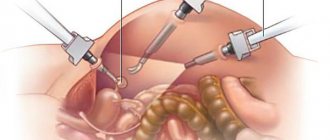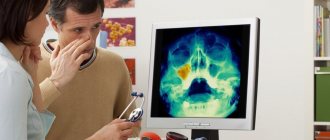Types of fainting and their features
Fainting or syncope is a short-term loss of consciousness associated with oxygen deprivation of the brain. Classified as a mild form of vascular insufficiency. Types of unconsciousness:
- vasovagal (the most famous type, associated with physical or psychological stress, caused, for example, by a hot shower or the sight of blood);
- emotiogenic (provoked by excessive emotions, such as fear or excitement);
- hypoglycemic (with a sharp drop in blood sugar levels);
- cardiogenic (occurs when there is a disturbance in the rhythm or functioning of the heart);
- intoxication (appears when poisoned by a harmful substance);
- anemic (when the natural flow of blood is disrupted).
Drug-induced syncope, a side effect of some medications, also occurs. Fainting before menstruation is more often associated with cardiogenic causes or a sharp decrease in blood pressure.
When you need to see a doctor urgently
Fainting occurs as a result of impaired metabolic flow and blood circulation, resulting in neuronal hypoxia. The causes of an attack are different, and are not always physiological. Fainting may indicate the presence of serious pathological factors in the body, such as:
- somatic diseases;
- neurotic diseases;
- malignant neoplasms;
- atherosclerosis of the vessels of the head;
- heart diseases;
Fainting often occurs in the presence of heart pathologies
- aneurysm of the vessels of the head;
- massive blood loss;
- blood diseases;
- arterial pathology;
- low blood pressure;
- high blood pressure;
- cardiopsychoneurosis;
- intoxication with poisons;
- diabetes;
- infectious course in the body.
In case of frequent cases of fainting, or a long stay in an unconscious state, you must immediately consult a clinic and undergo the prescribed examination.
How to identify presyncope
Signs of imminent syncope:
- sudden dizziness;
- darkening or “silver veil” in the eyes;
- manifestation of nausea;
- numbness, tingling sensation in the arms and legs;
- weakness in the legs;
- feeling of “coldness” inside;
- the appearance of cold sweat;
- pale facial skin.
It is important to notice the approach of fainting in time to have time to sit or lie down. This will help protect you from falling and hitting your head.
Signs of an approaching illness
Symptoms for each young lady are individual - they depend on the age and specifics of the body. But there are also common features: sudden weakness, pale skin or painful blush, blue lips, dizziness, nausea, circles before the eyes, ringing in the ears, tingling in the extremities, accompanied by chills, cold sweat, “woolly legs.”
Usually the fainting state lasts from a couple of seconds to 4 minutes. If consciousness does not return for more than 5 minutes, the woman must call an ambulance. Further symptoms are dangerous - convulsions and involuntary retraction of the tongue into the throat may begin.
Causes of fainting in women
Teenagers and adult women may experience fainting during their period. Reasons characteristic of such syncope:
- decreased blood volume;
- blood pressure decreases sharply;
- increased level of carbon dioxide in the blood (due to stuffiness in the room);
- decreased hemoglobin level.
The attack can cause severe pain during menstruation to the point of fainting. Infrequently, the cause is sudden fear. Fainting during menstruation from abdominal pain often occurs with severe PMS.
How to provide first aid for fainting
If a woman has lost consciousness, it is necessary to make sure that air passes freely into the respiratory system. After detecting a pulse, you need to listen to how the woman breathes. If the pulse is not palpable or breathing is not observed, you should immediately perform an indirect massage of the heart muscle, but this must be done professionally.
When breathing is present and a pulse is felt, the woman is placed on a flat, hard surface. Without placing pillows, just raise your legs by 30 centimeters. Then you should loosen the belt at the waist and unbutton the collar of your clothes.
For relief, you can place a towel on your forehead
Place a damp towel on your forehead and wipe your face with cool water. If a woman suddenly feels nauseous, she must be carefully moved to her side. If it is impossible to turn over, then you can tilt your head to the side. This will help prevent ingestion of vomit and asphyxia.
If fainting occurs indoors, you should open a window to provide the room with fresh air.
You should not pour water on a woman, slap her in the face, or let her sharply inhale a concentrated ammonia solution. Until the woman fully enters a healthy state, it is not recommended to drink or eat.
It is necessary to increase the tone of arterial vessels and normalize blood pressure with the help of medications and caffeine-containing drinks. If a woman is injured when she faints, it is necessary to call an ambulance in order to provide medical measures and further necessary examination.
Specifics of the pathology
Fainting during menstruation is the body not having time to adapt to the loss of blood. The answer to the question “why do people faint during menstruation” is usually connected with this. This problem often occurs at the very beginning. Because of this, complaints appear: “I faint on the first day of my period.”
Indirect reasons:
- constant stress;
- strenuous physical activity.
Such syncope occurs only during menstruation and does not bother at other times.
Beginning fainting: tips
A sudden deterioration in health can occur at any time. In such a situation, certain advice helps, especially if the woman has previously encountered fainting conditions that occur on menstruation days. If you're feeling unwell and you're worried you're about to pass out, try these tips:
- Rub your earlobe until it turns red or press firmly on it. Pressing on points located above the upper or lower lip also helps.
- Provide access to fresh air, open the window. It is not recommended to be near an open window or on the street unaccompanied to avoid an accident.
- Lie down in a comfortable position with your legs elevated.
- Wash yourself with cold water, use a fan.
- Use a cotton swab with ammonia or any other item with a strong odor. Such inhalation causes unpleasant irritation of the mucous membranes of the upper respiratory tract, and while reflex conductivity is maintained, the person immediately comes to his senses.
All actions must be started immediately. This helps reduce the risk of fainting.
How to prevent fainting during menstrual periods
The occurrence of fainting during the menstrual period is easier to prevent than to stop. To reduce the risk of their occurrence, you need to follow certain rules. Correct lifestyle and behavior during menstruation improves a woman’s well-being. This result can be achieved by following the following recommendations:
- Stop drinking alcoholic beverages and smoking. If a woman smokes and does not intend to quit this bad habit in the near future, then she should at least reduce the number of cigarettes she smokes per day. It is much easier not to drink alcohol, especially knowing that it can dilate blood vessels and thereby increase blood loss during menstruation.
- Eat right. It is best to stick to a specific diet, paying attention to foods rich in phosphorus, potassium and magnesium.
- Take complex vitamins. This helps restore vitamin and mineral deficiency and thereby prevent many complications.
- Alternate mental and physical activity. Of course, during menstruation, physical and mental stress should be completely excluded from life, because they can cause not only fainting, but also organ diseases.
- Full sleep. Sleep at least 8 hours a day. According to scientists, restorative sleep lasts from 22.00 to 00.00. By skipping this time and going to bed after midnight, a woman deprives herself of beneficial sleep and thereby harms her body.
- Walk outdoors more often. Once a day, you should pay attention to walking at a leisurely pace somewhere in a square or park.
- Do breathing exercises. Such an event saturates the body with oxygen and thereby reduces the risk of fainting during menstruation.
- Know how to relax. Relaxation doesn't only have to be on the couch. In addition to your body, pay attention to your mind. Acupressure, aromatherapy and medicinal baths work wonders on your mood and improve emotional stability.
- Do not stay in the sun for long periods of time and avoid stuffy rooms.
If fainting during menstruation does not recur frequently and occurs without additional warning symptoms, there is no need to worry too much. It is imperative to reconsider your rhythm of life and give up bad habits. For complete peace of mind, it is better to consult a doctor and consult about this.
Do I need to see a doctor if I experience regular fainting?
If such a symptom occurs for the first time, you must consult a doctor. You need the advice of a gynecologist, and, if necessary, other specialists. Diagnostic methods:
- collecting anamnesis (data about menstruation, its regularity, duration and frequency of fainting);
- examination (pressure measurement, auscultation and percussion of the heart and lungs);
- comprehensive examination (general analysis and blood glucose, ECG).
If it is necessary to exclude the risk of disease, additional studies are prescribed.
How is the diagnosis carried out?
The first thing you need to do:
- blood analysis;
- sugar indicator;
- ECG;
- chest x-ray.
Diagnosis includes a blood test.
When examining a woman, the doctor may refer her for additional diagnostics. The most common methods for diagnosing fainting include the following studies:
- electrocardiography;
- Holter monitoring;
- electrophysiological study;
- echography and catheterization;
- electroencephalography;
- cerebral angiography;
- head scan;
- determination of glucose tolerance.
Drugs
Drug treatment used:
- non-steroidal anti-inflammatory drugs (Paracetamol, Ibuprofen) – for painful periods;
- antispasmodics (“No-shpa”);
- vitamin E;
- sedatives (herbal medicines or tranquilizers).
For complex pathologies, combined estrogen-gestagen agents are used.
Diagnosis of pathological syndrome
Regardless of the fact that most often fainting occurs on its own, it is necessary to perform an examination and undergo therapy; such attacks can signal the presence of a disease that poses a threat to the life and health of the patient.
The causes of fainting cannot always be determined, but diagnostics make it possible to determine the etiology of syncope. A comprehensive examination of the patient includes:
- interviewing a woman about possible causes of fainting: menstrual bleeding, duration of sleep, working conditions, use of a certain group of medications;
- examination of the patient, symptoms may be absent;
- immediately after fainting, the doctor may observe the victim’s slow reactions, sluggish speech, rapid heartbeat, and decreased blood pressure;
- blood plasma analysis for hemoglobin, red blood cells, glucose;
- hardware examination: MRI, ECG, ultrasound, x-ray.
You may need to consult with specialized specialists - a cardiologist if heart disease is detected, a gynecologist if you lose consciousness on critical days, as well as a neurologist if there are disorders of the central nervous system.
It is necessary to take a blood test for hemoglobin, red blood cells and glucose
Danger signs and risks of complications
If the complaint “I faint during menstruation” is repeated frequently, this is a reason to visit a gynecologist. Regular syncope may be a sign of:
- inflammatory process in the pelvic organs;
- arterial hypotension;
- decreased or increased blood sugar;
- heart problems.
Medical attention is needed urgently if cramps of the calf muscles or the whole body appear simultaneously.
About pain during the menstrual cycle
Every woman at least once in her life has encountered unpleasant and painful sensations during menstruation. For some, they occur occasionally with colds and weakened immunity, while others suffer from pain all their lives. Gynecologists of the Federal Scientific and Clinical Center FMBA say: “Pain during menstruation is not normal!”
In modern medicine, painful menstrual syndrome is regarded as a disease called “algodysmenorrhea” or “dysmenorrhea”. The first name is considered to be more accurate, but due to its length, the second name is more often used - dysmenorrhea.
There are two types of disease:
- primary (functional) dysmenorrhea – observed in adolescence and in women aged 20-25 years. Repeats cyclically, pain occurs 12 hours before menstruation or on the first day of the menstrual cycle, lasts from 2 to 42 hours. It has an aching, cramping or bursting character, radiating into the intestines or bladder. The disease is not associated with pathological changes in the genital organs;
- secondary (organic) dysmenorrhea – occurs against the background of pathological processes of the pelvic organs due to urogenital diseases and inflammatory processes. Characteristic of women after 25-30 years. It is characterized by heavy bleeding with clots and severe pain in the lower back. Pain appears and intensifies 1-2 days before the start of the menstrual cycle.
Causes of primary dysmenorrhea
Causes of primary dysmenorrhea:
- Physiological – disruption of hormone synthesis. There is an increased production of prostaglandins - substances responsible for uterine contractions during PMS. Their excess quantity leads to strong uterine contractions and, accordingly, to the occurrence of pain. Also, discomfort is caused by increased production of adrenaline, norepinephrine, dopamine and serotonin.
- Psychological – the patient’s fear of menstruation and neurological disorders. A reduced pain threshold, psycho-emotional instability and other neurological disorders exacerbate the perception of pain;
- Magnesium deficiency in the blood;
- Congenital anomalies of connective tissue development;
- Vascular disorders;
- Atypical position of the uterus, its underdevelopment and malformations.
Primary dysmenorrhea occurs:
- Adrenergic
, in which the level of adrenaline, norepinephrine and dopamine - special hormones that can affect a woman’s well-being - increases in the body during critical days. As a result, various functions of the body are disrupted, causing, along with the main signs of the disease, changes in skin color and heartbeat. Due to impaired blood circulation, the skin of the face turns pale, the hands and feet become cold and acquire a bluish tint. - Parasympathetic
, characterized by hypersecretion of serotonin, another important hormone. The general symptoms characteristic of this disease include swelling, sweating, weight gain on the eve of critical days, associated with fluid retention in the tissues.
Prevention
To prevent the occurrence and development of pain during menstruation, it is necessary to apply preventive measures:
- regular visits to the doctor for a gynecological examination (at least 2 times a year);
- refusal of the intrauterine device;
- timely treatment and diagnosis of gynecological diseases;
- avoidance of curettage and abortion;
- compliance with general treatment recommendations and doctor’s orders;
- Immediately visit a gynecologist if pain occurs during menstruation for two or more cycles.
Where to go for diagnosis and treatment of menstrual pain in St. Petersburg
Examination for such conditions is best done in specialized gynecological clinics that have modern diagnostic equipment. In St. Petersburg, the Diana Clinic provides treatment and diagnosis of pain during menstruation.
Gynecologists with the highest category work here, there is a new ultrasound machine, and a modern laboratory. The cost of an expert pelvic ultrasound is only 1000 rubles. The conclusion is issued in person.
If you find an error, please select a piece of text and press Ctrl+Enter
Symptoms of dysmenorrhea
Dysmenorrhea pain begins in the lower abdomen before or along with menstruation. They have a cramping nature with impact in the back, groin and anus. Women complain of fatigue, diarrhea, headache, nervousness, dizziness, fainting, nausea and vomiting. Some people experience the whole range of symptoms, while others are only bothered by pain.
The pain lasts from several hours to 2-3 days. During the break between critical days, the woman does not feel any unpleasant symptoms. During vaginal and rectovaginal examination in patients suffering from primary dysmenorrhea, as a rule, no pathology is detected.
Pain during menstruation and accompanying symptoms can be of varying degrees of severity depending on the type of pathology. Alarming symptoms requiring special attention:
- Pain syndrome
: severe pain in the lower abdomen of a pulling, stabbing or cramping nature, occurring 1-2 days before menstruation and radiating to the rectum, appendage area, bladder, lumbar region, inner thighs. - Emotional and mental disorders
: sleep disturbance, irritability, nervousness, excessive sensitivity, anxiety, emotional depression, anorexia, bulimia, odor intolerance, taste perversion. - Autonomic disorders
: nausea, belching, hiccups, chills, fever, increased sweating, dry mouth, frequent urination, bloating, diarrhea alternating with constipation. - Vegetative-vascular manifestations
: loss of consciousness, dizziness, headache, arrhythmia, tachycardia, bradycardia, heart pain, numbness of the extremities, swelling of the face. - Metabolic and endocrine disorders
: increased or decreased temperature, weakness, loss of strength, vomiting, feeling of “woolly” legs, itchy skin, joint pain, swelling.
How should normal periods proceed?
Menstrual pain can be a natural ailment or indicate the presence of a serious pathology.
The normal state of a woman during menstruation is characterized by mild pain or minor discomfort. Light, nagging, short-term pain indicates contractions of the uterus, getting rid of the “outdated” inner layer of the mucosa - the endometrium. A new endometrium is formed every month - during pregnancy it will serve as a bed for a fertilized egg.
If a woman regularly suffers from unbearable, severe pain, accompanied by dizziness, nausea, fainting and other symptoms that impair performance, then the disease is dysmenorrhea (algomenorrhea, algomenorrhea). This condition indicates various disorders in the hormonal, vascular, nervous or other system of the woman’s body.
Treatment of painful periods: is it necessary to go to a gynecologist?
The goal of treating dysmenorrhea is to identify the cause of the disease, eliminate it and eliminate pain. The gynecologist prescribes therapy based on the form of dysmenorrhea, the nature of the pain syndrome, its cause and the individual characteristics of the patient.
Most women “treat” menstrual pain with medications that relieve pain. At the same time, they believe that such a decision is the best way to avoid visiting a doctor. In fact, dysmenorrhea can be a symptom of a serious gynecological disease.
By temporarily eliminating the pain, you will not get rid of the cause that gives rise to it, so visiting a gynecologist is only a matter of time. This is especially true for secondary dysmenorrhea that occurs after normal menstruation. This pathology often occurs as a result of inflammation of one of the organs of the reproductive system.
Complications of dysmenorrhea
Late diagnosis and treatment of pathology can lead to serious consequences:
- psychosomatic disorders – possible development of psychosis;
- the risk of the underlying disease becoming incurable (oncology, etc.);
- permanent loss of performance;
- infertility.
Pain during menstrual periods is not a direct symptom of infertility, but may be a consequence of diseases that reduce the ability to conceive. It is not surprising that women with painful periods sometimes cannot get pregnant. By consulting a doctor to treat dysmenorrhea, you can avoid infertility, because the doctor will diagnose and treat the cause itself.









